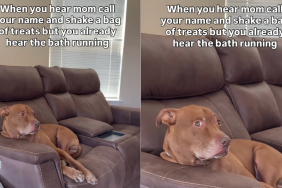Have you ever noticed your dog shaking or shivering uncontrollably? While occasional shivers are normal, persistent shaking may be cause for concern. As a responsible pet parent, it’s essential to understand the many reasons why dogs shake so you know how to help them. We’re breaking down the common causes of shaking in dogs. Then, we’ll share action steps so you can work towards alleviating this odd canine symptom.
Why do dogs shake?
Shaker Syndrome
Shaker Syndrome, also known as idiopathic cerebellitis, is a neurological condition that primarily affects small to medium-sized dog breeds. This disorder causes involuntary full-body tremors, often mistaken for shivering or coldness. The exact cause of Shaker Syndrome is unknown, but may be an autoimmune response triggered by an underlying infection or an abnormal immune system response.
What to do: Treating Shaker Syndrome involves managing the symptoms and addressing underlying causes. Your veterinarian may prescribe medications such as corticosteroids or immunosuppressants to alleviate tremors. Additionally, supportive care, including a quiet environment, regular exercise, and a nutritious diet, can help minimize the frequency and severity of shaking episodes.
Tremors
Tremors are involuntary rhythmic movements that affect dogs of all ages and breeds. They may manifest as whole-body shaking or localized trembling in specific areas such as the legs or head. The source of tremors varies widely, and may include genetic predisposition, metabolic imbalances, toxicity, underlying medical conditions, or aging.
What to do: Identifying and treating the underlying cause of tremors is crucial. If the tremors are caused by toxins, your veterinarian may induce vomiting or administer activated charcoal to eliminate the toxins from the dog’s system. For tremors related to metabolic imbalances, your vet may prescribe dietary adjustments or specific medications. In cases where tremors are a symptom of an underlying medical condition, addressing the root cause is essential to alleviate the shaking.
Anxiety and stress
Similarly to humans, dogs can experience anxiety and stress, which may manifest as shaking or trembling. Common triggers include loud noises, unfamiliar environments, separation anxiety, or traumatic experiences. Shaking due to anxiety is often accompanied by other signs such as pacing, excessive panting, or avoidance behavior.
What to do: Creating a calm and secure environment is crucial for dogs experiencing anxiety and stress. Provide a designated safe space, use pheromone diffusers, or play soothing music to help alleviate anxiety. Also, behavioral training, desensitization techniques, and gradual exposure to triggering stimuli can assist in reducing anxiety-related shaking. In severe cases, your veterinarian may recommend medications or herbal supplements to help manage your dog’s anxiety symptoms.
Cold
One common reason for a dog’s shaking is simply being cold. Dogs, especially those with short coats or little body fat, are more susceptible to feeling chilly. When exposed to cold temperatures, their natural response is to shake or shiver to generate body heat.
What to do: To address your dog’s shivering due to cold, provide them with a warm and comfortable environment. Ensure they have access to a cozy bed, blankets, or a dog sweater to help retain body heat. Limit their exposure to cold weather and consider using dog booties or jackets during walks in colder climates. If your dog shows signs of prolonged shivering or discomfort, consult your veterinarian to rule out any underlying health issues.
Excitement
When dogs get excited, they may exhibit shaking or trembling behavior. This type of shaking is usually temporary and accompanied by other signs of excitement, such as wagging tail, jumping, or barking. The body’s adrenaline rush during moments of excitement can cause involuntary shaking.
What to do: Helping your dog manage their excitement levels can reduce shaking episodes. Engage in regular exercise and playtime to release excess energy and promote overall relaxation. Establish a consistent routine to provide a sense of security. Also, try to minimize unpredictable situations that may trigger excessive excitement. Additionally, calming techniques, such as deep breathing exercises or using puzzle toys to redirect focus, can soothe your dog’s excitement-induced shaking.
Decoding your dog’s shaking
It’s essential to differentiate between normal and abnormal shaking. While occasional shaking due to cold or excitement is usually harmless, do not ignore persistent or severe shaking. If you have concerns about your dog’s shaking or if other symptoms arise, consult your veterinarian for a proper evaluation and guidance. A proactive approach will keep your pup happy and healthy.









